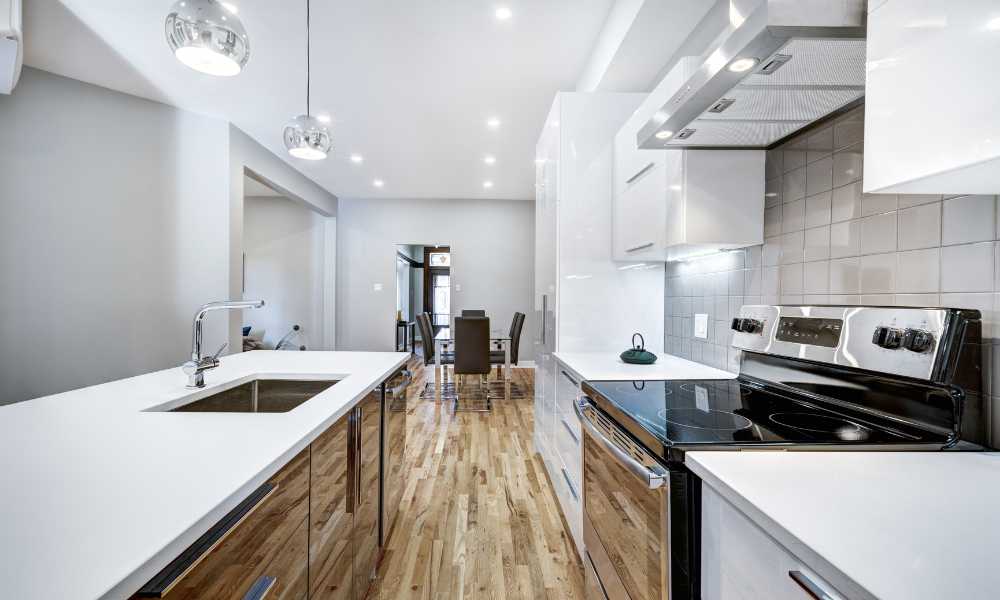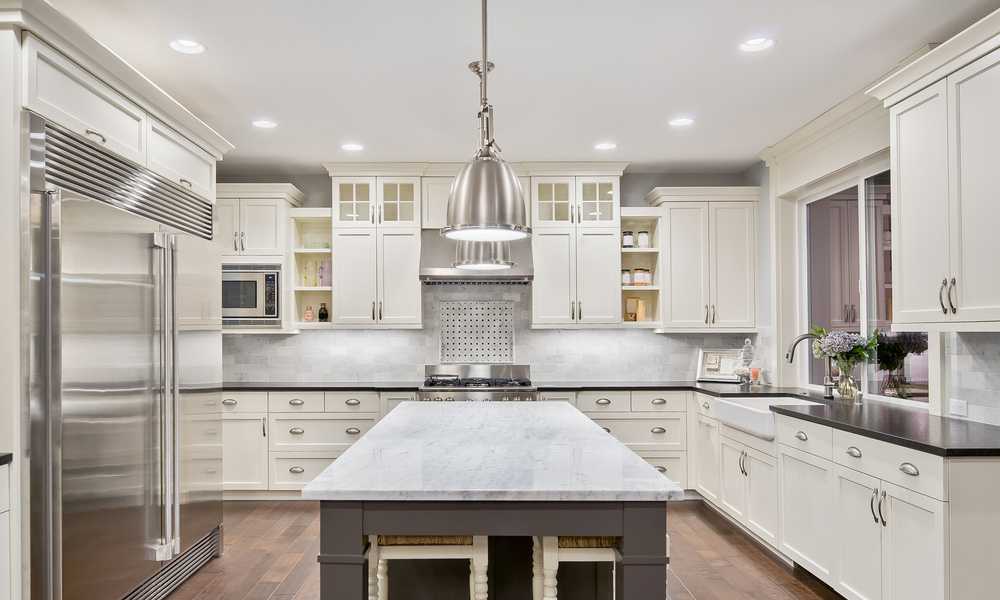Kitchen renovation refers to the process of making significant changes or improvements to the structure, design, and functionality of a kitchen space. This often involves upgrading various elements such as cabinets, countertops, appliances, flooring, and lighting to enhance both aesthetics and usability. The significance of kitchen renovation goes beyond mere cosmetic enhancements, as it plays a crucial role in improving the overall quality of life for homeowners. A well-designed and efficiently organized kitchen not only adds value to a home but also contributes to a more enjoyable and functional living space. Understanding the renovation timeline is vital in managing expectations and ensuring a smooth and timely execution of the project. This involves careful planning, coordination, and a realistic assessment of the time required for each phase, from design and demolition to installation and completion. A well-managed timeline not only minimizes disruptions but also allows homeowners to better anticipate the outcome of their kitchen transformation.
Factors Influencing Kitchen Renovation Duration
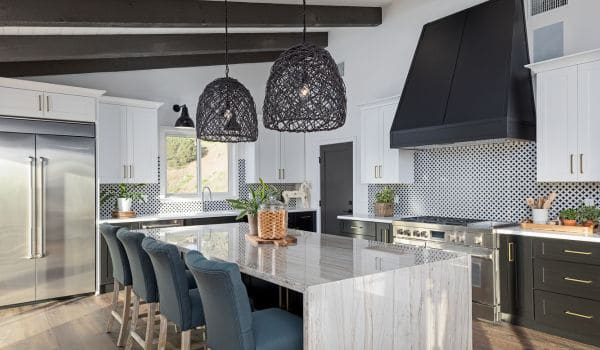
Size of the Kitchen
The size of the kitchen is a pivotal factor influencing the duration of a project. Small kitchens may require less time for both demolition and reconstruction, while larger spaces typically demand more extensive work. Factors such as the number of appliances, cabinet units, and the overall square footage contribute to the complexity of the process.
Scope of Renovation
The scope of the renovation project is another determinant of the timeline. Cosmetic changes, such as painting or replacing fixtures, generally take less time compared to structural modifications that involve alterations to the layout, electrical systems, or plumbing. A comprehensive understanding of the intended changes is crucial in estimating the time required for completion.
Material Selection
The materials chosen for the also play a significant role in determining the duration of the project. Certain materials may require more time for procurement, customization, or installation. Delays can occur if specific materials are in high demand or if custom orders are necessary. Careful consideration of material availability is essential for a streamlined timeline.
Contractor and Workforce
The expertise and efficiency of the contractor and workforce directly impact the timeline. Experienced and well-coordinated teams tend to work more efficiently, potentially reducing the overall duration of the project. In contrast, inexperienced teams may face challenges that lead to delays. Choosing a reliable contractor and skilled workforce is critical for timely and successful kitchen renovations.
Pre-Renovation Planning

Project Assessment and Goal Setting
Before embarking on a kitchen renovation, a thorough project assessment and goal-setting phase are essential. Clearly defining the desired outcomes and understanding the specific requirements help in planning the project effectively. This initial step lays the foundation for a well-organized and focused process.
Budgeting and Financing
Establishing a realistic budget and securing adequate financing are integral components of pre-renovation planning. Understanding the financial aspects ensures that the project stays on track without unexpected delays due to budget constraints. A well-defined budget also guides material and design choices, contributing to a smoother process.
Obtaining Necessary Permits
Acquiring the necessary permits is a crucial step in complying with local regulations and building codes. Failing to obtain permits can result in costly delays and legal complications. Incorporating the time needed for permit approval into the timeline is essential for a seamless and legally compliant project.
Hiring Contractors and Subcontractors
Carefully selecting and hiring contractors and subcontractors is pivotal in determining the success and efficiency of a kitchen renovation. Thoroughly vetting potential professionals, checking references, and ensuring clear communication channels contribute to a cohesive team, minimizing disruptions and avoiding delays during the process.
Execution Phase
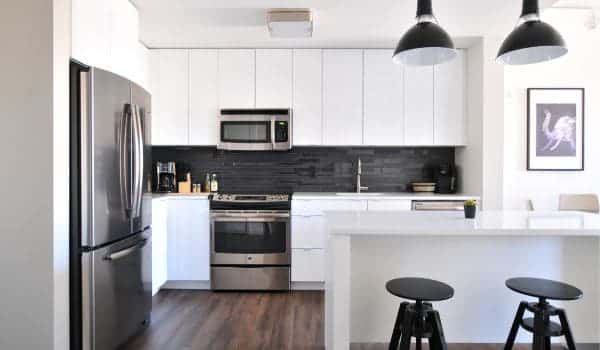
Demolition and Preparation
The initial stage of the execution phase involves the removal of existing structures, such as old cabinets, appliances, and flooring. This sets the groundwork for the by clearing the space and preparing it for the subsequent construction phases. Efficient demolition is crucial for a smooth transition to the rebuilding process.
Structural Changes
Structural modifications encompass alterations to walls, floors, and ceilings as per the design. Whether expanding the kitchen space, changing room layouts, or reinforcing structural elements, this phase requires careful planning and skilled craftsmanship to ensure the integrity of the overall structure.
Installation of Utilities
Plumbing and electrical work are critical components of the process. This phase involves installing or upgrading utilities to accommodate the new kitchen layout and features. Proper coordination between plumbing and electrical teams is essential to avoid conflicts and ensure the seamless integration of these crucial systems.
Cabinetry and Fixtures
Customization and installation of cabinetry and fixtures follow the structural phase. This step includes fitting and securing cabinets, installing appliances, and incorporating fixtures such as sinks and faucets. Attention to detail during this stage contributes significantly to the functionality and aesthetics of the kitchen.
Flooring and Countertops
Material selection for flooring and countertops is a key decision in the execution phase. Once chosen, the installation process begins, requiring precision and expertise. Properly installed flooring and countertops not only enhance the visual appeal of the kitchen but also contribute to its durability and functionality.
Painting and Finishing Touches
The final steps involve painting the walls, adding any necessary finishes, and attending to the last details that complete the overall aesthetic. Choosing appropriate colors and finishes during this phase adds the final touches, creating a cohesive and polished look for the kitchen.
Unforeseen Challenges
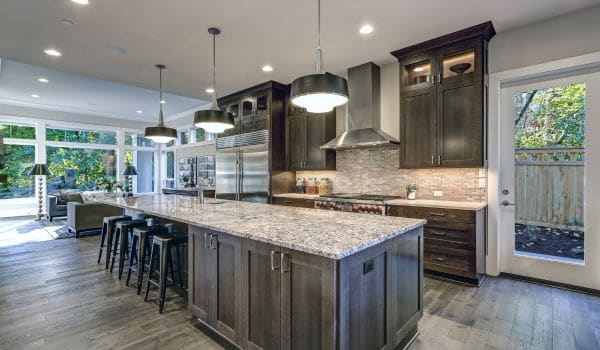
Dealing with Unexpected Issues
Despite careful planning, unforeseen challenges may arise during the process. This could include hidden structural problems, unexpected utility issues, or other complications. Addressing these challenges promptly and effectively is crucial to maintaining the project’s momentum.
Adjusting the Timeline
When unexpected issues arise, adjustments to the timeline may be necessary. Flexibility in the schedule allows for adapting to unforeseen challenges without compromising the quality of work. Clear communication between the homeowner and the team is essential in managing expectations and revising timelines as needed.
Additional Costs and Solutions
Unforeseen challenges may also result in additional costs. It’s important to have a contingency fund in the budget to cover unexpected expenses. Identifying cost-effective solutions and alternatives when challenges arise helps to manage additional costs and keeps the project on track. Regular communication with the team can aid in finding efficient solutions to unexpected issues.
Post-Renovation Phase
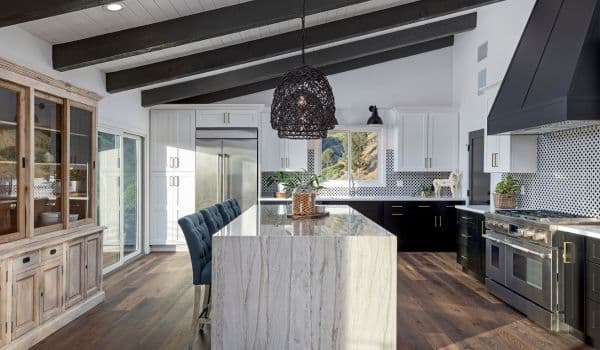
Inspection and Quality Assurance
After the completion of the renovation, a thorough inspection is conducted to ensure that all work meets the predetermined standards and adheres to building codes. Quality assurance involves checking for any defects, ensuring proper functionality of utilities and appliances, and confirming that the aligns with the homeowner’s expectations.
Final Walkthrough with Contractors
A final walkthrough is conducted with the contractors to review the completed project. This provides an opportunity for the homeowner to address any concerns, ask questions, and ensure that all aspects of the have been executed according to the agreed-upon plans. Open communication during this phase is essential for resolving any lingering issues.
Feedback and Adjustments
Seeking feedback from the homeowner is a crucial part of the post- phase. This allows for the identification of areas that may need adjustments or improvements. Addressing feedback promptly ensures client satisfaction and provides valuable insights for contractors to enhance their future projects.
Case Studies
Examples of Swift Renovations
Examining instances of swift kitchen showcases effective planning, skilled execution, and seamless coordination among contractors. These case studies highlight successful projects that were completed within or even ahead of the estimated timelines, providing insights into best practices for efficient renovations.
Instances of Extended Timelines
Analyzing cases where kitchen renovations experienced delays offers valuable lessons on potential challenges and pitfalls. Understanding the reasons behind extended timelines, such as unexpected issues or miscommunication, provides valuable insights for both homeowners and contractors to avoid similar delays in future projects.
Tips for a Timely Kitchen Renovation
Efficient Planning Strategies
Thorough planning is foundational for a timely. This includes detailed project assessments, clear goal setting, and a realistic timeline. Properly estimating the time needed for each phase and accounting for potential challenges in the planning stage contribute to a more efficient execution.
Communication with Contractors
Open and effective communication between homeowners and contractors is vital throughout the process. Regular updates, clarification of expectations, and addressing concerns promptly contribute to a smoother workflow and help prevent misunderstandings that could lead to delays.
Contingency Plans for Delays
Incorporating contingency plans into the project timeline and budget is essential. This ensures that unexpected issues can be addressed without causing significant disruptions. Having alternative strategies in place for potential delays allows for a more adaptive and resilient approach to the renovation process.
Conclusion
A successful kitchen renovation requires meticulous planning, skilled execution, and effective communication. Understanding the factors influencing the duration, navigating the execution phase with flexibility, and implementing post-renovation assessments contribute to a positive and timely outcome. By learning from case studies and following valuable tips, homeowners and contractors can work together to achieve a functional and aesthetically pleasing kitchen space within the anticipated timeframe.
